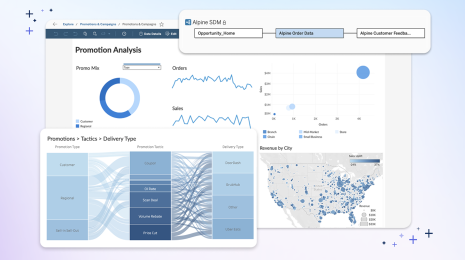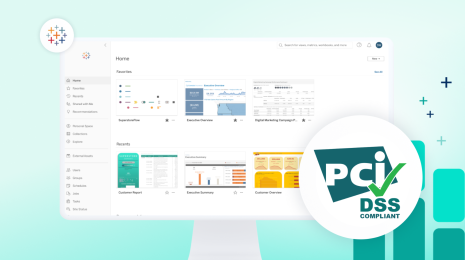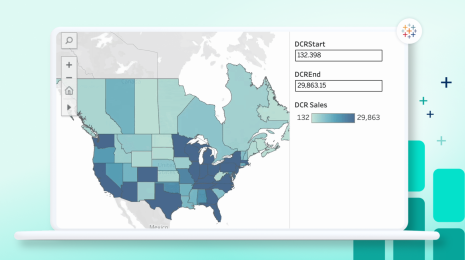Analytics extensions are now available in Tableau Cloud
Editor’s Note: Tableau Online is now Tableau Cloud.
First thing’s first: I am thrilled to announce that Tableau’s analytics extensions are now available in Tableau Cloud.
Starting with R integration in Tableau 8.3, analytics extensions have allowed Tableau users to dynamically bring sophisticated analysis and integrations into their visualizations. Since then, we added support for Python via TabPy, an open API for creating custom integrations, we expanded our scalability and security features to include authentication and SSL, and we added the ability for Tableau Server to support multiple connections. All of these steps have led up to support for integrating Python, R, and other analytics extensions in Tableau Cloud.
Analytics extensions allow teams to build interactive dashboards and visualizations for viewers to understand and interact with advanced analysis tools and capabilities that are not available out of the box in Tableau—for example, predicting future trends using custom models with predictions that users can filter and test with different input scenarios. With integration in Tableau Cloud, deploying these tools becomes even easier in Tableau's fully managed SaaS environment.
Get started with analytics extensions in Tableau Cloud
Today, in a Tableau Cloud site, site admins can navigate to the Site Settings menu, and under Extensions, check the box to enable analytics extensions on the site, and select “Save.”
The site admin can then select “Create new connection” to configure a connection to an analytics extension. Connections can be for R in RServe or to TabPy or other analytics extensions. For Tableau Cloud, connections must support both SSL and authentication.
And with those simple steps, we’ve connected our site to an analytics extension. Once created, a connection can be modified, or deleted entirely. To run an analytics extension with Tableau Cloud, you’ll need to have your extension server or service (for example, TabPy) running on a machine that has access to the internet and is configured for traffic on the IPs used by Tableau Cloud. For more information, check out our product documentation.
Once a connection is configured, users can publish workbooks using the analytics extension, or even create new views using web authoring!
Now that analytics extensions are available in Tableau Cloud, we look forward to seeing how you use Tableau to bring the frontiers of data science closer to your users and customers! Please connect with me at nmannheimer@tableau.com to share any ideas or feedback.
Dive deeper into Tableau analytics extensions use cases and resources
Check out these additional resources on analytics extensions to make the most of your data science tools with Tableau:
- Analytics extensions documentation in Tableau Help — Read our how-to articles and learn to use Tableau data science integrations with R, MATLAB, and Python.
- Analytics Extensions API — Develop new integrations for Tableau using the Analytics Extensions API.
- Recorded session: Operationalizing data science — To watch, first sign in to the TC20 site, then navigate to the presentation titled “Operationalizing data science with Tableau.” If you’d like to follow along with the exercises, download the supporting materials. Materials on using TabPy for visual analytics (the first link is for TC20, the talk is called Operationalizing Data Science).
- Recorded session: Data science applications with TabPy/R — Watch this TC18 presentation on YouTube, and download the supporting materials to follow along with the examples.
- Recorded session: Even more data science applications in Tableau — Watch this TC19 presentation on YouTube, and download the supporting materials to follow along with these additional examples.









